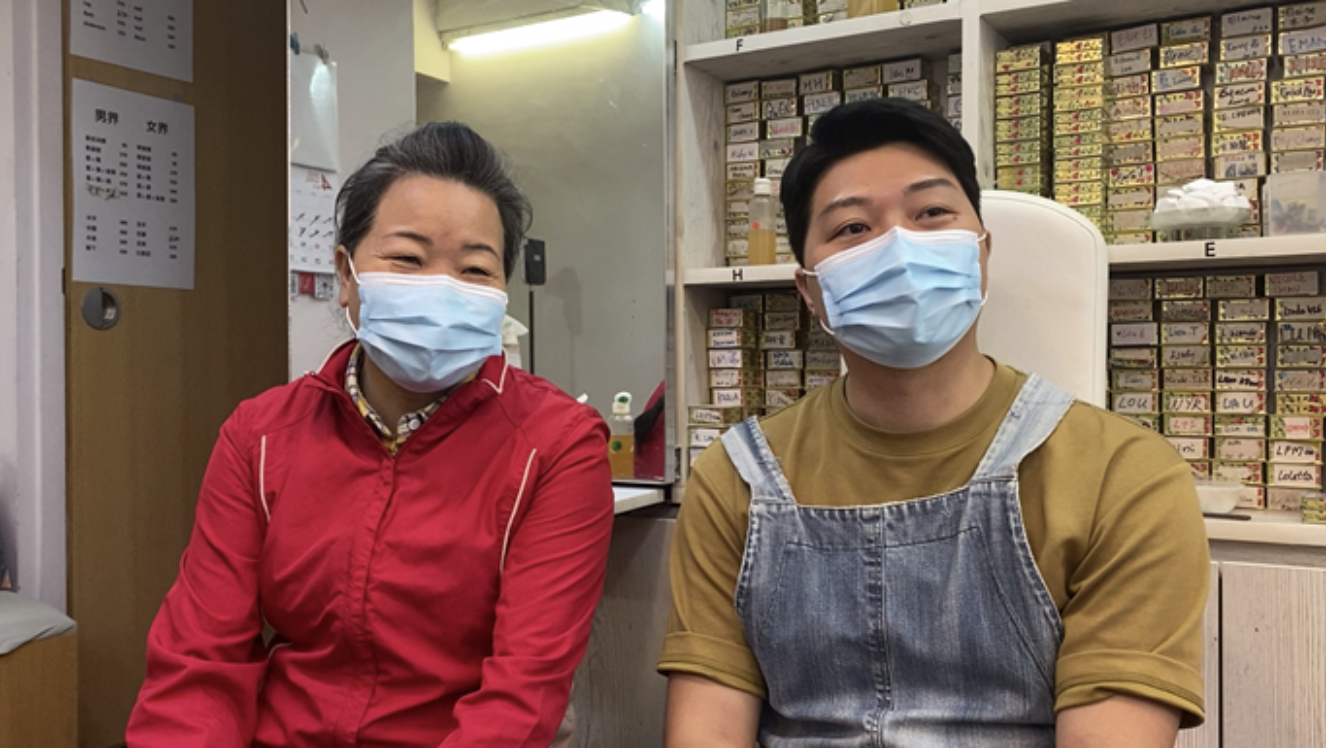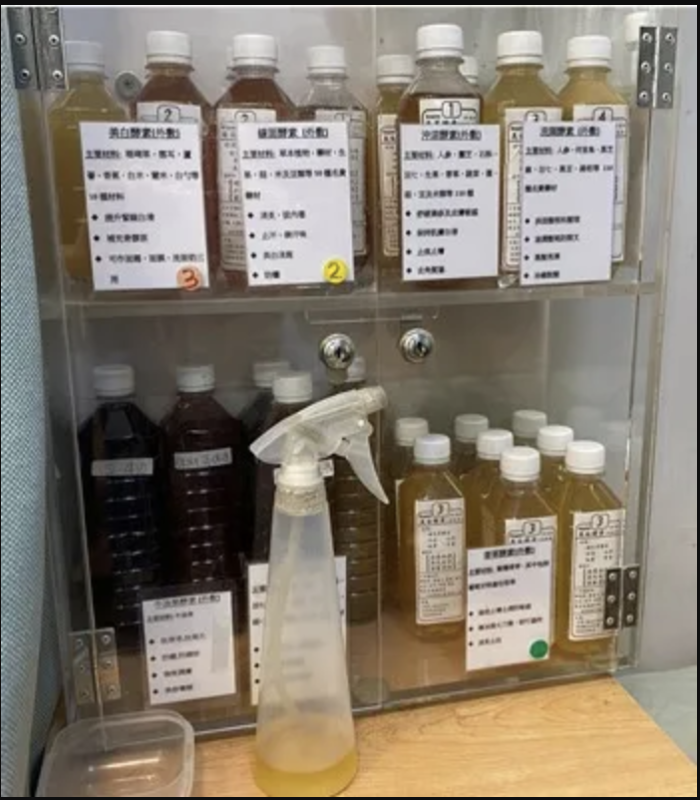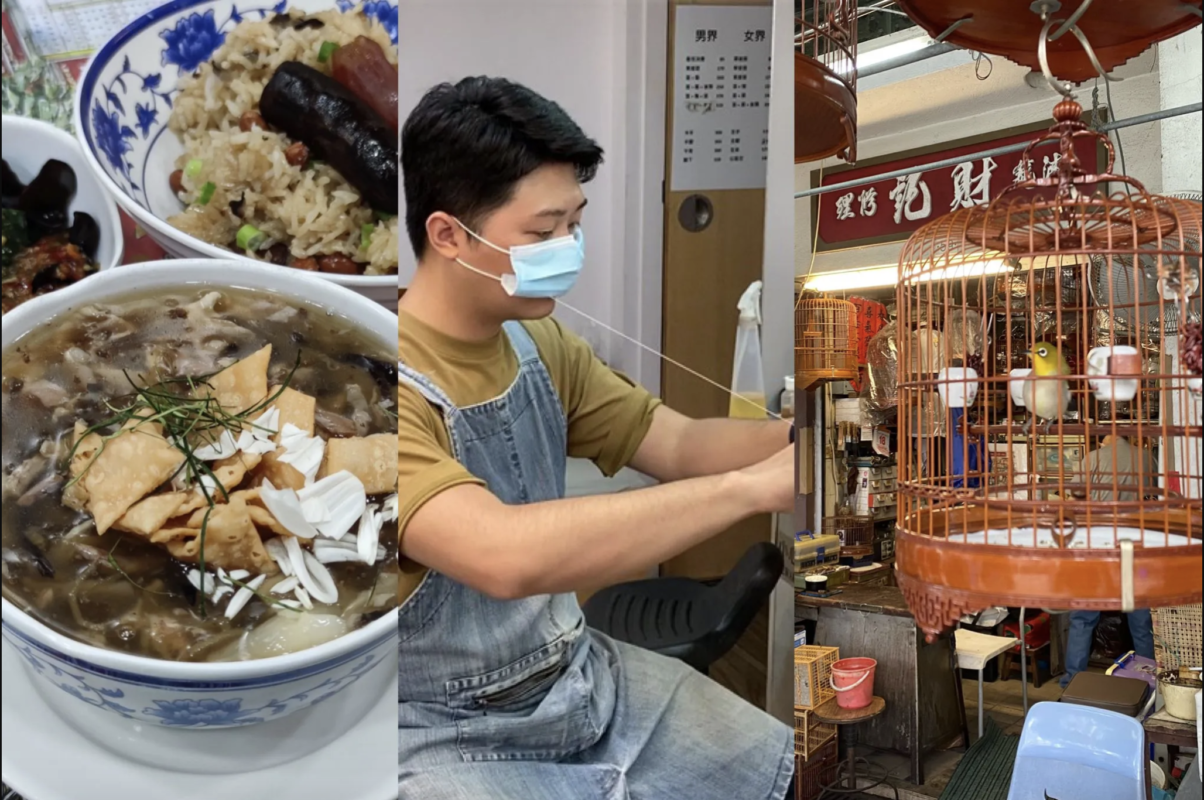傳媒訪問
A GLIMPSE OF THE SUNSET INDUSTRIES IN HONG KONG Excerpt @ SHROFFED by NATALIE MAK
Written by Angie Ling, Hilary Wong and Natalie Mak
A Silver Lining of the Vanishing Face Threading Industry
Face threading involves the use of thread and begonia powder, also named “Hoi Tong” powder in Cantonese, to remove customers’ unwanted facial hair, limb hair, dead skin, face grease and dirt.
While face threading is said to originate in India and the Middle East with over 6,000 years of history, it was considered an important ritual for brides-to-be before their marriage in ancient China, which carries the meaning of bringing good fortune to them.
It also has great cultural significance in Hong Kong. In 2014, the face threading technique was recognized as an intangible cultural heritage (ICH) in the city, according to the first ICH Inventory of Hong Kong.

With myriads of beauty salons distributed across Hong Kong and offering services with modern technologies like laser facial treatments, traditional beauty treatment– face threading– is gradually fading away and might soon become part of history.
Nevertheless, Beauty Choice Threading, a traditional face threading salon located at Sheung Wan, represents a ray of hope for this industry. The owner Ho Sui Tin, whom everybody calls Mrs Leung, is the soul and icon of the shop.

Threading -From a kind of childhood entertainment to a lifelong career
Mrs Leung, a threading expert with about 40 years of experience in the industry, inherited the threading skill from her mother and started to do threading on others at the age of 5 to 6. “At that time, I treated threading as a kind of leisure as we did not have TV or other entertainment in our hometown,” said Mrs Leung.
Despite having nimble fingers and excellent threading techniques, Mrs Leung admitted that doing threading is never easy, especially when she wants to do her best. She added that having learnt how to hold a thread does not mean that one is able to do threading. “I delved into the threading skill and kept practising, and it took me three years to become a master,” said Mrs Leung.
In Mrs Leung’s eyes, every industry has its own challenges. However, she believes that
when you do everything wholeheartedly and the result is evident, it [the industry] will only become more prosperous.”
Love for the family as a motivation for entering the threading industry
The skilled threader, who is also a loving mother of 3 children, entered the threading industry all because of her children. “After they [Mrs Leung’s children] were born, it would be hard for me to look after my family and children if I went out to work,” said Mrs Leung.
“I started looking for a way which would allow me to earn a living but at the same time take care of my family, and so I chose this industry,” said Mrs Leung.
The affectionate mother had worked in the textile industry for a year, but she described the experience as “horrible”. Mrs Leung said she was always pressed to meet deadlines and had to work overtime without earning much money at that time. The job did not allow her to take a tiny break and take care of the family at all, she added.
“In my industry, no matter how busy I am, I can still take care of my children,” said Mrs Leung.
During the interview, Mrs Leung repeatedly stressed that being able to take care of the family is one of the greatest advantages of running the threading business at home. She said that the balance between livelihood, health and family enabled by the home threading business is a privilege that going out to work cannot offer.
The evolution and changing perceptions of the threading industry
According to Stanley, Mrs Leung’s youngest son, the recognition of the threading industry has changed a lot over time. Stanley said that in the past, this traditional beauty industry was perceived as a kind of business operating in street stalls or underneath the bridge where an old lady was doing threading on others. As time changes, the industry has gained more popularity with an expanding customer base which consists not only of the middle-aged as in the past, but also those in their 20s and even teens, Stanley added.
The significance of threading has also altered.
“In the old days, people treated threading as a means to change their destiny. Ladies also had threading treatment before they got married, which signifies putting off their old self and putting on the new self. However, nowadays, threading is more about beauty,” said Stanley.
The legend of skill inheritance

Then, twist the thread for a few times. Photo: Natalie Mak
As the youngest son in the family, Stanley saw his mum and his sister work really hard for their home threading business when he was little. “Sometimes customers flocked into our shop during lunchtime or after work. But we only had two people [his mum and his sister] working here and we had to accommodate many customers all at once. It was not easy,” Stanley recalled. Therefore, Stanley and his brother, Jack “recommended themselves” to Mrs Leung and suggested they learn threading and help in the shop when they were in junior form.
Stanley’s skilful threading technique stemmed from an unforgettable summer vacation spent in Mrs Leung’s hometown, which he described as “the funniest” experience. “In that summer, my mum brought us to her hometown and we stayed there for a month, even though we had to close our shop for the whole month. We set up booths in the village to offer free threading services to the people there. I learnt the skill by doing threading on others incessantly. I spent the whole summer in that way. After we returned to Hong Kong, we got tanned, but our skills had improved remarkably,” said Stanley as he smiled.
Mrs Leung, the master hand at threading, recalled the long queues formed in the village when villagers heard that she came and offered free threading services. “We did threading from day to night,” said Mrs Leung as she and her son laughed together.
The impacts of COVID-19 on the business of Beauty Choice Threading
As the fifth wave of coronavirus strikes Hong Kong since the beginning of 2022, the government had extended its strict social distancing policies multiple times, resulting in over 3 months of suspended operation of the scheduled premises from 7 January to 20 April. Beauty parlours are one of those that were ordered to cease operation.
Stanley said their threading salon was directly subject to the government’s social distancing measures and they had to suspend business during the entire period. This long period of closure together with several suspensions in 2021 have exerted a serious impact on their business, according to Mrs Leung and Stanley. They also said that the difference between pre-COVID revenue and revenue amid the pandemic is significant. Under such business circumstances, they still feel fortunate that they do not have to pay rent and their business cost is low.
However, they are not without financial worries. “They [Mrs Leung’s children] have to pay their mortgage, the impact [of business suspension] is big,” said Mrs Leung as she shook her head. “If they [the government] still don’t allow us to resume business, we will go through a rough time,” said Mrs Leung.
On 21 March, the government announced that most of the existing COVID-related measures would be relaxed in 3 phases starting 21 April. Beauty parlours are among those scheduled premises that are allowed to reopen in phase 1. Stanley said many of their customers have already booked an appointment for threading on 21 April.
Business breakthroughs

Different types of handmade natural herbal enzymes sold in the online shop of Beauty Choice Threading. Photo: Screenshot of Beauty Choice Threading’s official site
According to Stanley, Mrs Leung has been making enzymes for a long time and kept looking for a way to tackle customers’ post-threading skin allergy. Over ten years ago, Mrs Leung discovered enzymes which could help cure this allergy problem and they are still in use today, Stanley said.
Mrs Leung added that enzymes are effective disinfectants. “Many of our customers also trust that enzymes can kill bacteria effectively. We keep spraying enzymes [around our shop] and it’s well ventilated here, so people were willing to come once the measures were eased in these 2 years,” said Mrs Leung. During the pandemic, many regular customers purchase more enzymes to use at home, Stanley added.
Stanley said their threading salon has also adopted e-commerce which generates more sales for them. Customers can also purchase Mrs Leung’s handmade natural herbal enzymes from Beauty Choice Threading’s official site.
The future of the face threading industry
We are confident,”
said Stanley.
The second-generation inheritor of the traditional threading technique feels optimistic about the prospects of the industry as he said, “like what Mrs Leung has just said, you can make customers look pretty and feel very happy every time when they leave our shop, from this we can see the positive effect of threading.”
Stanley said there is not any other types of beauty techniques or products which can uproot the dirt in the existing market. “It’s hard to look for a way that can make you look prettier and prettier,” said Mrs Leung seriously. “Only threading has this effect,” she and her son said simultaneously with their heads nodding. Stanley explained that through face threading, grease, dirt, dead skin, and stratum corneum (the outermost layer of skin) can be uprooted.
The traditional threading technique remains undefeated despite the popularity of modern beauty treatments. Mrs Leung recalled that a customer, who was very happy with her clean face after face threading, said that it [threading] was very different from doing facials.
Stanley reiterated that they are confident about the future of the industry and he said,
it’s a kind of business which can help others and ourselves at the same time.”
The article is from – A GLIMPSE OF THE SUNSET INDUSTRIES IN HONG KONG

